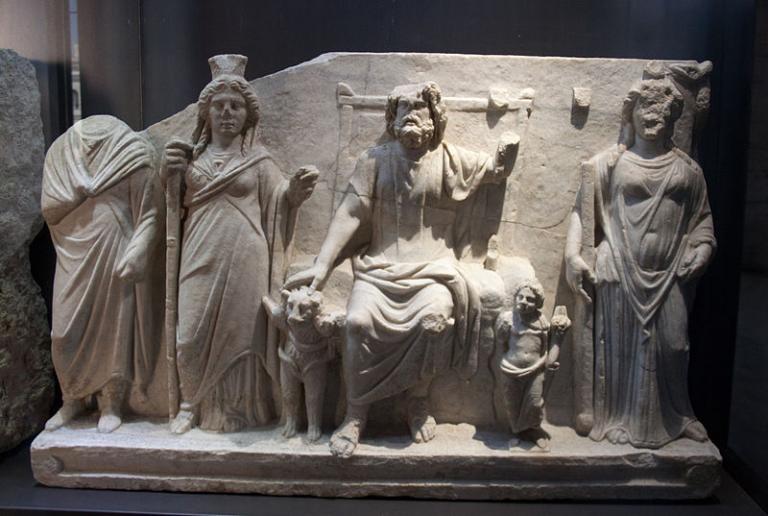“Are you waiting for an invitation to worship a God? If so, please stop – go worship! No God is a stranger to you, all Gods are owed their due worship.”
Are you waiting for an invitation to worship a God? If so, please stop – go worship! I say this because I have noticed that many pagans have a tendency to wait for the “call” to worship or, as many say, to “work with a God.” Some avoid certain Gods out of a notion that there is no connection between them and a particular God. I read one time how someone said they could not pray to Athena since they were ‘dedicated’ to another God. All of this is deeply problematic and within Hellenism could be understood as un-Hellenic behavior.

One of my first reactions to this attitude of non-interaction before invitation is the feeling that some have the expectation that there should be some sort of Pauline experience with each and every God before engaging with them in cultic worship. This shouldn’t be the case or expectation; if you identify as a polytheist, then by nature you naturally worship many Gods without preconditions. No God is a stranger to you, all Gods are owed their due worship – just do it.
I am very blunt with this matter because people coming out of monotheism often run the risk of forming a pseudo-monotheism around one God for personal subjective reasons. They “like” the God or felt “called” by that God. You may be thinking that this sounds like henotheism, but this behavior is vastly different from henotheism.

Henotheism cannot reduce Gods and Goddesses into one another. In henotheism, a Goddess like Isis absorbs other Goddesses, but does not absorb other Gods. A male and female deity will remain permanent in polytheism, even in henotheistic devotion. In the case of Isis worship, there will always be Serapis. Henotheism does not reject all other Gods for one God out of the rest; all Gods still receive cultic observance whenever it is ritually required. For some, focusing on one God helps to ease them into polytheism, but don’t forget the goal is to give due worship to the other Gods as well.
This is the point I wish to stress: in polytheism, Gods receive cultic observance whenever it is ritually required. Sure, you can focus most of your cultic activities around one God, but other Gods still are due their worship, at the bare minimum when ritually required, even if it is once a year. Ideally, polytheists should want to worship all Gods even when not ‘required.’ By this I mean, since we do not live in ancient times and festivals are not occurring outside in our neighborhoods that would prompt us to engage in those ritual observances, we would seek out to perform those rituals freely ourselves.

Why do some shy away from the Gods? Why aren’t more people freely seeking to worship all the Gods? I have seen people express fear that they may offend the Gods in one form or another, that they don’t have anything in common with this or that God. Maybe the God does not want their worship? Whatever the reason is that is keeping you from pouring a libation, saying a hymn, giving thanks to the Gods, it is not a Hellenic way to approach the Gods and, I must say, not productive. Expecting an invitation in essence means that you are waiting for the Gods to come to you, one by one with a personal invitation. Invitations are not owed to you – worship is owed to the Gods is though.


















